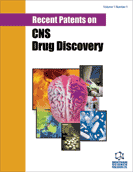Abstract
The most common age-dependent neurodegenerative disorders such as dementia and Alzheimers disease have become an urgent public health problem in the most areas of the world. The strategy of the current therapy focuses on increasing availability of brain acetylcholine concentration, and use of acetylcholinesterase inhibitors has become the main approach to symptomatic treatment. However, an ideal drug for the disorders should enable to both simultaneously delay or halt the underlying pathological process and improve memory. The present paper describes an alterative cholinergic strategy to memory enhancement by the exogenous introduction of highly enriched docosahexaenoic acid (DHA) - containing molecular species of highly pure phospholipids and highly pure ether phospholipids based brain DHA transporters to promote survival of aged basal forebrain cholinergic neurons (BFCNs) through reversing abnormal levels of neural membrane DHA aminophospholipids. This results in significantly improving neural membrane fluidity and gap capacity leading to further recovering the expression of the p75 neurotrophin receptor and then failed retrograde nerve growth factor signaling, followed by promoting the choline acetyltransferase activity in the BFCNs. The pre-clinical results shown in published patents and recent applications to support the proposed therapeutic mechanism of the brain DHA transporters are summarized. The advantage of the potential drugs in both the prevention and treatment of agedependent basal forebrain cholinergic dysfunction related neurodegenerative disorders is further discussed.
Keywords: Phospholipids, docosahexaenoic acid, phosphatidylserine, phosphatidylcholine, phosphatidylethanolamine, phosphatidyl-monomethylethanoamine, ether phospholipids, lysophosphatidylcholine, lysophosphatidylethanolamine, choline acetyltransferase, p75 neurotrophin receptor, age-dependent cholinergic neurodegeneration, dementia, Alzheimer's disease, lipid metabolism
 20
20

